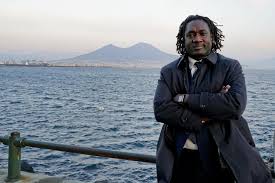India waging proxy war to support terrorism, disrupt economic development of neighbours: Chinese scholar

Beijing: A Chinese scholar on Monday said that India, which traditionally had been a regional hegemonic country, was now launching a “proxy war” to support terrorism and disrupt the social stability and economic development of neighbouring states. “The more India develops, the stronger its military power becomes, the greater the threat it poses to regional peace,” Visiting Professor of Southwest University of Political Science and Law, Cheng Xizhong said at a panel discussion on promoting multilateralism and international law through adherence to the principles and purposes of the United Nations Charter at the Pakistan Embassy, Beijing.
Prof Cheng opined that it seemed that the complexity of the anti-terrorism situation in South Asia, especially the increasing trend of terrorism in Pakistan in recent years, was closely related to the regional power secretly supporting terrorism. “The regional power, he said,”is trying to undermine Pakistan’s relationship with Iran and Afghanistan, and Pakistan’s relationship with Muslim countries in the Middle East. “It is using ‘proxy war’ to hire, fund, and support terrorists to carry out terrorist activities, to disrupt Pakistan’s economic and social development, and to disrupt the construction of the China-Pakistan Economic Corridor, in order to achieve two main objectives: firstly, to continuously weaken Pakistan, secondly, to increase Pakistan’s strategic pressure on the western front, so that Pakistan will be unable to defend its sovereignty, independence, and territorial integrity on the eastern front.” Prof Cheng presented three points for peace in world. “One is to abandon hegemony.
The earth belongs to all countries in the world. Issues in the world should be negotiated and agreed by all countries. Especially, we should not allow one country, citing its own domestic laws, to announce sanctions against other countries, or to decide the fate of other countries. “Agreed by almost all major countries in the world, the Charter of the United Nations is an internationally accepted document, and its basic principles should be effectively followed. “In particular, there are the principles of mutual respect for sovereignty and territorial integrity, mutual non-aggression, non-interference in each other’s internal affairs, equality and mutual benefit, and peaceful co-existence. The principle of peaceful settlement of international disputes decrees that, peaceful means should be used regarding the settlement of disputes or disagreements between countries. Any use or attempt for the use of force or threat of force is a violation of international law.” He said the second was to stop interfering in internal affairs. “Mutual non-interference of internal affairs is a principle of international law. In accordance with this principle, no nation or group of nations has the right to interfere directly or indirectly with another state for any reason whatsoever.
No excuse or pretext may be used to interfere in the internal and foreign affairs of another country, and no means should be used to force another country to accept the will, to adopt the social and political systems or ideologies of another country. “Since the end of the Cold War, some big powers have exported ideology to some countries. They have carried out military strikes in some countries under the name of counter-terrorism, provided military equipment to anti-government armed groups in some countries. “These are serious violations of the principles of international law and one of the main causes of civil war and intrastate turmoil in some countries.” Prof Cheng said the third point was to maintain international order.
“There is a force that wantonly destroys the normal international order nowadays. The manifestations include: firstly, considering only their own interests at the expense of the interests of other countries; secondly, frequently showing off military force and provoking incidents in the international arena; thirdly, taking various measures to curb the rise of the emerging economies in the world; fourthly, practicing double standards on the issue of counter-terrorism, trying to destabilize other countries by ‘proxy war’. “This is a very dangerous signal that could exacerbate unrest in all parts of the world.” He said that in today’s world, unprecedented changes were accelerating and the world was entering a new period of turbulence and transformation. “The cold war thinking and power politics remain unresolved, with frequent regional conflicts and turbulence.
Economic globalization is facing a backlash, and unilateralism and protectionism are clearly on the rise. Human society urgently hopes to overcome crisis and move towards the correct path of lasting peace and prosperity. “In response to a series of major issues and challenges facing the world, China advocates for an equal and orderly world multi-polarization and inclusive economic globalization, which has pointed out the direction and provided a path for the international community to move towards long-term stability and achieve common development,” he added.





